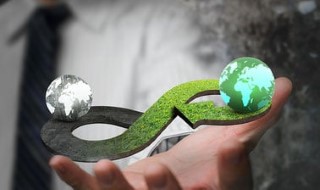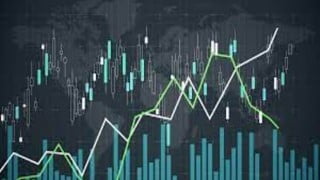Circular Economy: An Interdisciplinary Approach
Join the transition towards a circular economy considering economic, supply chain, social, technical, managerial and environmental aspects.
What you will learn
- Economics and Policies in a Biobased Economy or Business Strategy and Operations in a Biobased Economy
- From Fossil Resources to Biomass: a Chemistry Perspective
- Capstone Economics and Policies for a Circular Bio-Economy or Capstone Business and Operations for a Circular Bio-Economy
- Understand the concept of a circular economy
- Understand how a circular economy deviates from the current linear system
- Analyse and develop complex circular systems using a systems thinking approach
- Assess the use of Life Cycle Assessment and Agent Based Modelling
- Formulate improvements for a transition towards a circular design
- Learn how to use and apply complexity aspects & agent-based modelling
Program Overview
Do you want to contribute to a more sustainable society? Tackle the challenges in the transition towards a circular economy? In this course you will analyse what it takes to create a circular economy including sustainable supply chains.
The transition towards a circular economy is one of the biggest challenges in order to create a more sustainable society. This transition requires circular thinking and an interdisciplinary approach, combining socio-technical, managerial, and environmental considerations.
Right now we design products from cradle to grave: from production to consumption to waste, which is a linear model. But we should design products from cradle to cradle: in a closed loop whereby they don’t become waste, but valuable resources again. And when we start thinking in circles, we might as well try to reinvent not just supply chains, but entire systems. Because that’s what we have been doing with sustainability: we have been departing from the status quo, while cradle to cradle and circular pushes us to think outside the box.
Cradle to Cradle celebrates abundance; it recognizes that people, just like ants and trees, are abundant and have a large impact on their environment. The challenge is to make this impact a positive one and we invite you to join this challenge!
In the MOOC Circular Economy: An Interdisciplinary Approach, we therefore take a systems approach to the circular economy, considering different stakeholder perspectives, their incentive structures, and their impact on circular alternatives.
The circular solutions will be assessed by using applied, as well as emerging, technologies. You will learn how to use life cycle assessment and agent-based modelling to assess the socio-technical and manageable challenges and environmental benefits of alternative solutions.
Join the MicroMasters Program
This MOOC is part of two MicroMasters Programs, Economics and Policies for a Circular Bio-Economy and Business and Operations for a Circular Bio-Economy.
Both programmes prepare you for the transition from fossil to renewable, biobased resources and consist of 3 courses and a final project; the capstone:
Economics and Policies in a Biobased Economy or Business Strategy and Operations in a Biobased Economy
From Fossil Resources to Biomass: a Chemistry Perspective
Capstone Economics and Policies for a Circular Bio-Economy or Capstone Business and Operations for a Circular Bio-Economy
User Reviews
Be the first to review “Circular Economy: An Interdisciplinary Approach”
You must be logged in to post a review.







There are no reviews yet.